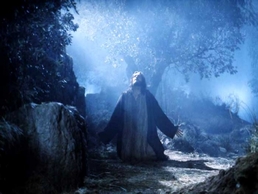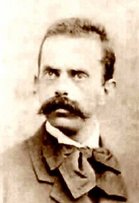|
In Alvin Plantinga’s 1980 address to the American Catholic Philosophical Association “The Reformed Objection to Natural Theology”,[i] the proposition God exists is declared to be properly basic by the reformers and as a result natural theology—the arguments for God’s existence—is unnecessary. Following a brief summary of Plantinga’s paper, three benefits of properly basic beliefs will be outlined, and then three reasons will be presented as to why the complete rejection of natural theology using Plantinga’s account of properly basic beliefs simply goes too far.
Plantinga points out this conclusion by establishing that the Classical foundationalist approach of knowledge (commonly attributed to Plato through Aquinas and then a modified form to Descrates through the 20th Century) required all knowledge be built upon certain foundational propositions—namely those that are either self-evident, evident to the senses, or incorrigible—made natural theology necessary. However, reformers like John Calvin rejected Classical foundationalism (in lieu of a form of weak foundationalism) on the grounds that God exists is a foundational proposition per scripture but does not fit the requirements to be a foundational proposition (that is the existence of God is not self-evident, evident to the senses, or incorrigible). As a result, since theologians no longer need to work with foundational principles to arrive at the knowledge of God natural theology becomes unnecessary. Joseph Boyle’s response to Plantinga concisely captures the line of thought: “The Christian knows God exists. Natural theology makes sense only if God's existence is not in the foundations. But it is.”[ii]
3 Comments
 Is Jesus A way? or THE way? “saying, 'Father, if you are willing, remove this cup from me. Nevertheless, not my will, but yours, be done.' And there appeared to him an angel from heaven, strengthening him. And being in an agony he prayed more earnestly; and his sweat became like great drops of blood falling down to the ground” (Luke 22:42-44). Is Jesus the only way? Or is Jesus a way among many alternatives? If paths to the Father exist other than the cross, then Jesus' anguish in Gethsemane doesn't make sense. Jesus entirely life and purpose has been about His mission, and yet now at the time of its consummation it would seem to appear that He is having second thoughts about completing it. For Jesus knows the true cost of what it will take to pay the penalty for the sin of man and to achieve justice, satisfying the wrath of God.  “To seek” God means: total unbridled commitment, blatantly obssessive pursuit, unreserved loyalty, and unashamed devotion. In a seemingly contradictory way, we are to “enslave” ourselves to God - not at our expense, but to our profit. By giving up everything to find God, we gain everything only to find that what we relinquished we could not keep and what we aquired we cannot lose. We sell what is worthless in order to acquire that which cannot be valued. We give up our lives in pursuit of God and in return we not only find Him who we sought, but are given a life worth living and, far better, life eternal. Thus, by whatever means, through His word, through His gifts, through His presence, we are to commit all our energies to restoration with our Father. In short, if we make God our sole desire and seek Him earnestly with all our hearts, then He will give Himself to us and we shall be rewarded with that which we seek.  Throughout history as man looked at the created world he has asked “Why does something exist instead of nothing?” Answers range from luck to a creator, but each view implies certain facts that must fit the characteristics of the world and its creator (if it has one). It is by comparing these views that the importance and necessity of God and His attributes become clear when revealed through the flaws of man's best attempts to explain his world.  Nietzsche (1844-1900) Secularism has been promoted as the ideal throughout the 2oth century. Naturalistic science and reason have left no room for God as the Neo-Atheists have proselytized their faith in an accidental world. The roots of such secular thinking were nourished by the writings of Jean-Paul Sarte and Friedrich Nietzsche who was famed for coining the phrase "God is dead." Yet, a new academic study is claiming that humans are intrinsically transcendental, or that humans are hard-wired for religion. Obviously this doesn't actually answer the question of whether God exists or not, and certainly doesn't that God is the Christian God, but it certainly supports Theism. "Is Secularism dead?"  “Leaders lead by helping the people revisit good questions rather than a quest for the one perfect answer.” - Roy King While working with a sales team, we were coached never to "jump to fulfillment." Too often times sales people are eager to provide answers when the client doesn't even know their own problems. "Jumping to fulfillment" inevitably meant money was being left on the table either because the sales person didn't understand the scope of the problem, or the client didn't understand the value of services being offered.  The Problem of Evil: How could a good God create a world that contained evil? Scripture addresses the problem of evil directly in the book of Job and delivers a key message: that God is trustworthy even when we don't understand him (Job 13:15), but it stops short of explaining the reason for evil's existence. Sadly, this response, and Isaiah's response that God's ways and thoughts are higher than ours (Isaiah 55:8-9), are not enough to answer the inquiring minds of seekers and skeptics. Thus, theodicies are developed, not to question God's sovereignty, but to try and know the mind of God (using our limited understanding) and hypothesize (like good science) why evil exists in the world.  Sherlock Holmes (2009) A) What the film declares about the current worldview (specific details) The 2009 detective film “Sherlock Holmes” espouses the naturalism worldview and indirectly attacks theism (namely Christianity) through the film's plot, visuals, and dialogue. The plot revolves around Sherlock Holmes unraveling the mystery of a man's resurrection from the dead. Of course, while others tremble at the apparent supernatural event, the eccentric scientist Sherlock is unphased, and sets to determining not if, but how a man could be resurrected. Clearly operating from a naturalistic worldview, he begins asking the pertinent question of, “What are the facts?” which sum up a key line from the film: “It's a huge mistake to theorize before one has data. Inevitably, one begins to twist facts to suit theories, instead of theories to suit facts.” The film's unsaid assumption is that once one has the facts, all supernatural theories will be put to rest at the feet of Naturalism and reason. |
AuthorBrett Yardley: Categories
All
Archives
January 2019
|

